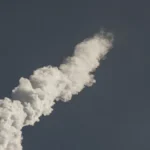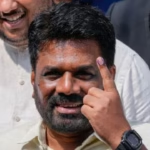Xi Jinping: The Architect of Modern China
Early Life and Education
Xi Jinping was born on June 15, 1953, in Beijing, China, into a prominent political family. His father, Xi Zhongxun, was a revolutionary veteran and a key figure in the Chinese Communist Party (CCP). Xi Jinping’s childhood was marked by privilege until the Cultural Revolution in the 1960s, when his family fell from grace. At the age of 15, he was sent to the countryside of Shaanxi province as part of a political campaign known as the Down to the Countryside Movement. This experience profoundly shaped his worldview and understanding of the challenges faced by rural China.
After years of hard labor, Xi returned to Beijing and pursued his education at Tsinghua University, where he studied chemical engineering. His time at university coincided with China’s opening up to the West, igniting his interest in governance and international relations. He later earned a Doctorate in Marxist theory from the same institution, reflecting his deep commitment to the ideological foundations of the Communist Party.
Political Ascension
Xi’s political career began in earnest in the early 1980s when he took on various roles within the party. He served in different provinces, including Hebei, Fujian, and Zhejiang, where he gained a reputation as a pragmatic leader focused on economic development. His tenure in Fujian, in particular, was notable for its emphasis on fostering private enterprises and attracting foreign investment.
In 2007, Xi was appointed to the Politburo Standing Committee, the top decision-making body in China, and in 2008, he became the Vice President. His ascent within the party hierarchy was marked by his close alignment with then-President Hu Jintao’s policies, particularly the emphasis on economic growth and stability.
However, it was in November 2012 that Xi Jinping’s political career reached a watershed moment when he was elected General Secretary of the Communist Party and Chairman of the Central Military Commission. In March 2013, he became President of the People’s Republic of China, solidifying his position as the most powerful leader in the country since Deng Xiaoping.
Vision for China: The “Chinese Dream”
Upon taking office, Xi Jinping introduced the concept of the “Chinese Dream,” a vision aimed at achieving national rejuvenation, economic prosperity, and improved living standards for the Chinese people. This slogan resonated deeply with the public and became a central theme of his administration. Xi’s vision encompasses several key elements:
- Economic Growth: Under Xi’s leadership, China has continued to experience rapid economic growth, although the pace has begun to slow. He has emphasized the need to transition from an export-driven economy to one that is more consumption-oriented, with an emphasis on innovation and technological advancement.
- Anti-Corruption Campaign: One of Xi’s hallmark policies has been an extensive anti-corruption campaign, targeting both high-ranking officials and lower-level bureaucrats. While the campaign has been hailed for addressing long-standing issues within the party, critics argue it has also been used to eliminate political rivals and consolidate Xi’s power.
- Military Modernization: Xi has prioritized the modernization of the People’s Liberation Army (PLA), increasing defense spending and enhancing China’s military capabilities. His administration has focused on asserting China’s territorial claims in the South China Sea and increasing its presence in global affairs.
- Belt and Road Initiative: Launched in 2013, the Belt and Road Initiative (BRI) is Xi’s signature foreign policy project, aimed at enhancing global trade and infrastructure connectivity. The initiative seeks to promote economic cooperation and development across Asia, Europe, and Africa, solidifying China’s role as a major player on the world stage.
Domestic Policies and Challenges
While Xi Jinping has made significant strides in asserting China’s global presence, his domestic policies have also sparked considerable debate. His government has taken a more authoritarian turn, with increased censorship and crackdowns on dissent. The 2014 Umbrella Movement in Hong Kong and the subsequent protests against the extradition bill in 2019 were met with harsh responses, signaling a shift towards a more repressive approach to governance.
Xi’s administration has also faced criticism for its handling of human rights issues, particularly concerning the treatment of ethnic minorities in Xinjiang and Tibet. Reports of mass detention camps in Xinjiang, aimed at re-educating Uyghur Muslims, have drawn international condemnation and accusations of cultural genocide.
Furthermore, the handling of the COVID-19 pandemic raised questions about transparency and accountability within the Chinese government. Critics argue that initial efforts to suppress information about the virus’s outbreak hindered global response efforts, leading to widespread infections and loss of life.
Foreign Relations and Global Impact
Under Xi Jinping, China has adopted a more assertive foreign policy, often described as “wolf warrior diplomacy.” This approach has led to heightened tensions with the United States and its allies, particularly over trade, technology, and territorial disputes. The U.S.-China trade war, initiated in 2018, has had profound implications for the global economy and strained relations between the two superpowers.
Xi’s leadership has also seen a shift in China’s relationship with the European Union and other countries. While seeking to foster partnerships and trade agreements, China has faced skepticism over its intentions, particularly concerning issues of human rights and environmental standards.
In contrast to the previous era of cautious engagement, Xi’s administration has embraced a more confrontational stance, resulting in increased competition and rivalry on the global stage. The South China Sea disputes, tensions with Taiwan, and the Belt and Road Initiative’s expansion into Europe and Africa have all contributed to a complex geopolitical landscape.
Legacy and Future Prospects
As Xi Jinping enters the second half of his tenure, questions surrounding his legacy and future direction for China loom large. The recent 20th National Congress of the Communist Party in October 2022 confirmed Xi’s position as a central figure in Chinese politics, with many analysts speculating that he may seek to extend his influence beyond the traditional two-term limit.
The consolidation of power under Xi has led to concerns about the future trajectory of the CCP and its relationship with the Chinese populace. While many Chinese citizens express pride in their country’s achievements and growing global stature, there is also a palpable sense of unease regarding the erosion of individual freedoms and the increasing centralization of authority.
The world watches closely as Xi navigates the challenges ahead, including economic reform, international relations, and domestic stability. His ability to balance these competing interests will shape not only China’s future but also its role in the global community.
Conclusion
Xi Jinping’s leadership has undeniably transformed China, propelling it onto the world stage as a major economic and military power. His vision for the “Chinese Dream” and ambitious policies have garnered both praise and criticism, reflecting the complexities of governing a nation of over 1.4 billion people. As Xi continues to shape China’s future, his legacy will likely be defined by a blend of economic achievements, political challenges, and the global impact of his administration.
In an era marked by rapid change and uncertainty, Xi Jinping remains a pivotal figure in understanding the trajectory of modern China. The choices he makes will resonate not only within China’s borders but will also influence the dynamics of international relations for years to come.





